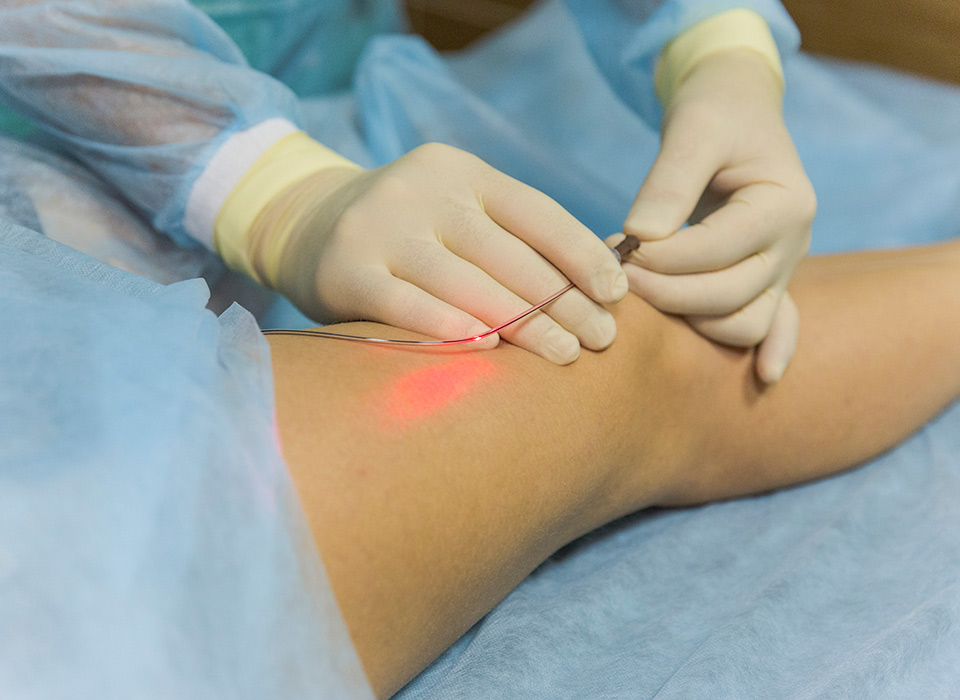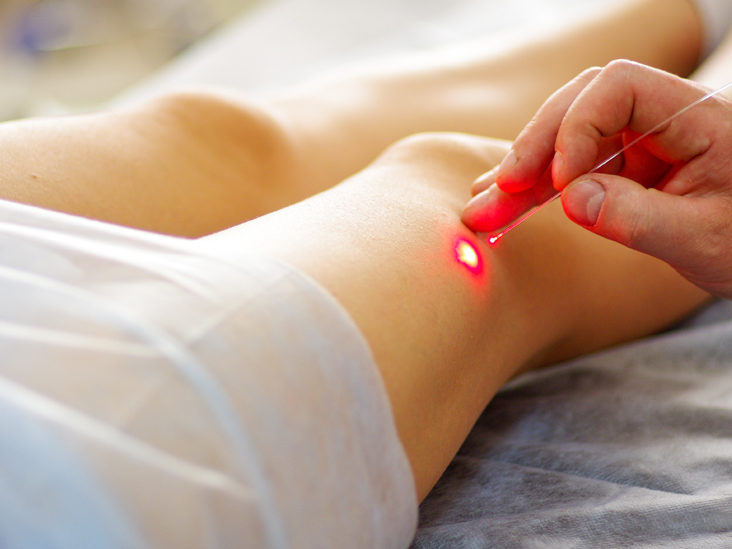Your healthcare provider may suggest laser surgery if your varicose veins are sore, or red and swollen (inflamed). Laser surgery may also be recommended if the skin over your varicose veins is irritated.
Varicose veins are not usually a serious health problem, but they can be painful. You may also not like how they look.
All surgeries have some risks. Some possible risks of laser varicose vein surgery include:
- Infection
- Pain over the vein
- Bleeding
- Bruising
- Nerve damage
- Redness or swelling (inflammation) of the vein
- Blood clots
- Changes in skin color over the treated vein
- Burns
You may have other risks, depending on your general health. Be sure to talk with your healthcare provider about any concerns you have before your surgery.
- Your healthcare provider will explain the procedure to you. Ask him or her any questions you have about the procedure.
- You may be asked to sign a consent form that gives permission to do the procedure. Read the form carefully and ask questions if anything is not clear.
- Your healthcare provider will ask questions about your health history. He or she may also give you a physical exam. This is to make sure you are in good health before the procedure. You may also need blood tests and other diagnostic tests.
- Tell your healthcare provider if you have a history of bleeding disorders. Let your healthcare provider know if you are taking any blood-thinning medicines, aspirin, ibuprofen, or other medicines that affect blood clotting. You may need to stop taking these medicines before the procedure.
- Tell your healthcare provider if you are sensitive to or allergic to any medicines, latex, tape, contrast dyes, and anesthesia medicines (local and general).
- Tell your healthcare provider about all the medicines you take. This includes both over-the-counter and prescription medicines. It also includes vitamins, herbs, and other supplements.
- You must not eat or drink for 8 hours before the procedure. This often means no food or drink after midnight.
- You may have medicine to help you relax (sedative).
- Arrange to have someone drive you home after the procedure.
Your healthcare provider may have other instructions for you.
This procedure doesn’t require a hospital stay. It may be done in your healthcare provider’s office. The procedure usually takes less than an hour. You can likely go home the same day. Bring loose-fitting clothing to wear right after your surgery.
Generally, endovenous laser varicose vein surgery follows this process:
- You’ll change into a hospital gown and lie down on an exam table. The table may be tilted in different positions during the procedure. You may be given special goggles or eyeglasses to wear during the surgery. This is to protect your eyes from the laser light.
- Your healthcare provider will numb the area where the tube or catheter will be put into your vein. Your healthcare provider will also give you a shot or injection of numbing medicine along the length of the vein that will be treated.
- Your healthcare provider will use a Doppler ultrasound device to check the vein before and during the procedure. This process uses sound waves to make an image of the vein on a computer screen.
- Your healthcare provider will make a small cut or incision in your skin and insert the catheter. It will be guided into the varicose vein. A laser fiber will be put into the catheter. As your healthcare provider slowly pulls out the catheter, the laser will heat up the length of the vein. The vein will close up and should eventually shrink.
The procedure usually takes less than an hour. The cut where the catheter was inserted will likely be small enough that you won’t need stitches. A bandage will be put on the site.
You will be encouraged to walk right after the procedure, for about 30 to 60 minutes.
Your leg may have some bruising. The bruises should go away in about 2 weeks.
You’ll need to have someone drive you home after your surgery.

